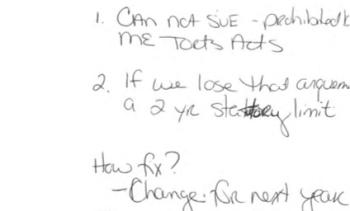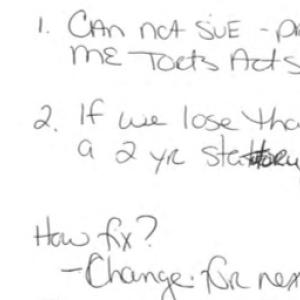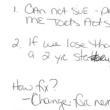UPDATE: Camden, Rockport meet quietly without SAD 28 to talk about Rockport’s education over-payments
CAMDEN — Any problem-solving initiatives concerning Rockport’s overpayments to the Camden-Rockport K-8 public school system over the past decade have yet to be publicly discussed.
Most recently, Camden and Rockport town managers and Select Board chairs met, but there was no word of what was discussed, other than a statement that they talked about the issue.
“Representatives from Rockport and Camden did meet to discuss the MSAD 28 assessment error,” said Town Manager William Post on Nov. 13, in response to a question about whether the meeting had occurred. “The meeting included the Chair of the Rockport Select Board, the Chair of the Camden Select Board and Town Managers Audra Caler and William Post. There were no representatives from SAD 28. The discussion focused on the MSAD 28 assessment error.”
School Administrative District 28 Superintendent Maria Libby said Nov. 10 that she had not been invited to the meeting; in fact, she heard about it through the district’s attorney, William Stockmeyer, of the Portland firm Drummon Woodsum.
Post also said that the Rockport Select Board discussed the matter Nov. 9 in an executive session. Classified as a legal conversation, the board went behind virtual closed doors to talk about the ongoing attempt to equalize what amounts to $1.5 million of overpayment by Rockport taxpayers. No motions were made following that executive session.
Since Nov. 9, no one who attended the two-town meeting will talk about the substance of that meeting, or about any possible solutions to the fiscal errors.
Liberty Mutual, the insurance company for SAD 28, told Libby in September that it would not cover the cost of the mistake and denied the district’s claim for help.
The denial rested on a list of reasons involving general liability coverage, as well as school leaders errors and omissions, and “specially, a school district is permitted under Maine law to obtain revenues only from lawful taxing measures and legislative appropriations and is not permitted to obtain revenue from insurance proceeds,” said Libby, reading in September from the denial letter.
The problem, which has also resulted in a lawsuit filed by Rockport against Camden and SAD 28 in Knox County Superior Court, rests on the fact that Rockport was over-billed from 2009-2010 until 2019-2020 because of an inaccurate cost-sharing calculation formula. It was identified in August, and the 2020-2021 $17 million budget was quickly readjusted so that Rockport would pay its share for this current school year less $422,784.
But that left settling inequitable assessments for the preceding years to the three public entities, all of which share the common goal of educating their children from Kindergarten through eighth grade.
To date, there has been no meeting of the three parties, who represent Camden and Rockport taxpayers in different capacities — two Select Boards and one School Board, or of the two town managers and the school superintendent.
Rockport filed its lawsuit against Camden and SAD 28 at the end of August and in September, at Rockport’s request, a Knox County Superior Judge issued a 60-day stay on the case.
Libby said Nov. 12 that this week’s SAD 28 School Board meeting agenda does not include the assessment matter, “as we don't have any information to share at this time.”
2004-2005 assessment errors
This is not the first time that Camden and Rockport have confronted such a problem.
In 2005, then SAD 28 Superintendent Pat Hopkins wrote to then Camden and Rockport town managers Roberta Smith and Bob Peabody concerning a 2004 error that had been made in how the district assessed Camden and Rockport for public education funding.
At that point in time, Camden had been assessed a constant 59 percent and Rockport a constant 41 percent, “instead of using a fluctuating percentage based on valuations and had been doing so for a number of years,” wrote Hopkins.
Similarly to the current problem, it apparently required a lot of sleuthing to retrace the financial steps of the district’s business office and locate state subsidy sheets. Discrepancies and errors were made in 1989 and through the 1990s.
The lump sum of $233,052, albeit, was smaller than the $1.5 million error uncovered for 2020, but the discussions that ensued then were equally complicated.
Hopkins wrote in her July 14, 2005 memo (attached) to the town managers that: “I find this situation as unsettling as you do and wish I could better explain how this came to be,” and apologized.
On Nov. 12, Camden Town Manager Audra Caler reported that Camden’s earlier overpayments to fund the Camden-Rockport K-8 school system were never recouped.
“I spoke with Roberta Smith, who was the Town Manager in Camden at the time and Chip Laite and John French, who were both on the Select Board,” said Caler. “The assessment error in 2004 wasn’t seen as a major issue then and it wasn’t treated as something important enough to ‘resolve.’ Both Towns and School District just moved on from it and accepted that the over/under payment happened. To be fair, it was less money than what we’re looking at now in 2020.”
Reach Editorial Director Lynda Clancy at lyndaclancy@penbaypilot.com; 207-706-6657
Event Date
Address
United States





























